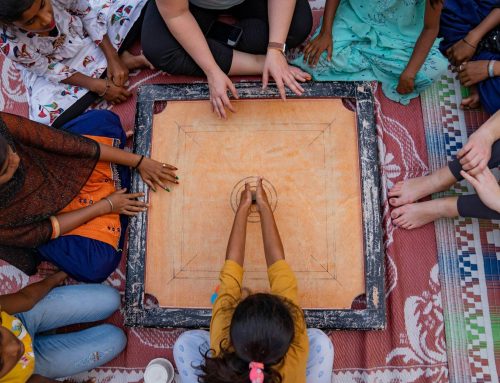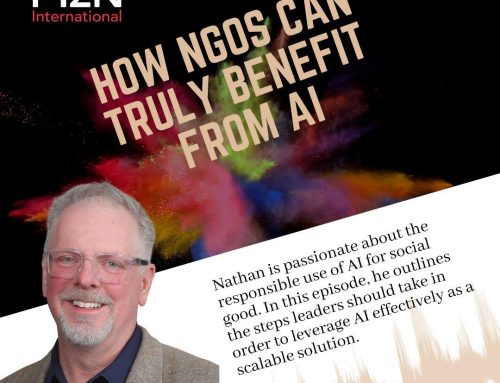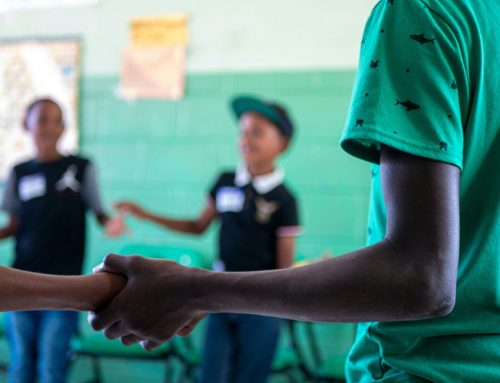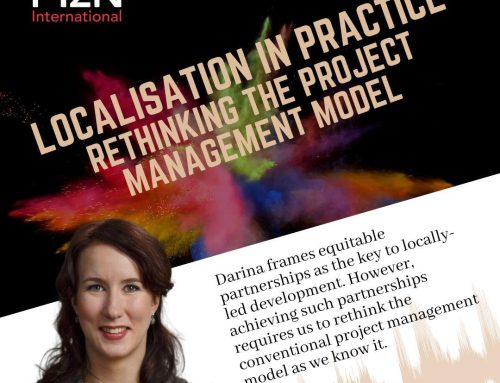MzN’s summary update on donors and aid agency response this week, including new funding pledges.
Main Takeaways
- Donors are gearing up with UN funds expected to be released next week and the week after.
- The EU announced a new donor conference in Brussels next month. NGOs should prepare capacity, response and recovery statements now and engage. NGOs can reach out to MzN’s funding support now to receive subsidized or free assistance.
- Capacity of local partner organisation in Gaziantep and across the border are severely affected, but import of goods and services into Türkiye is working. Market based responses should largely work.
- To mobilize the funds needed to help more, NGOs need to engage with donors now, starting with the release of detailed capacity statements.
- Help personally by donating to our recommended agencies below.
- Additional donor responses are expected to be announced in the second half of February, working on cash based and stabilization support, especially in Syria.
With each passing day, the devastating impacts facing Türkiye and north west Syria following Monday’s 7.8 magnitude earthquake are only increasing. With Türkiye declaring a three-month state of emergency in its ten worst-affected districts and Syria’s ongoing conflict, aid delivery is paramount.
As thousands of emergency responders and medical teams work tirelessly to help those in Türkiye and Syria, let’s look at which donors are responding to the call for aid.

Karam Kellieh - Search for victims and survivors amid the rubble of a collapsed building, in the Azmarin area on 8 February.
Humanitarian needs in Türkiye
- The Turkish government has acknowledged at least 12,873 fatalities and 63,000 injured
- Among the hardest hit provinces are Kahramanmaras and Hatay.
- UN OCHA reports at least 6,444 collapsed buildings and nearly 8,000 rescued people from the rubble of the buildings.
Humanitarian response in Türkiye
Donor Conference
Ursula von der Leyen, president of the European Commission, and Ulf Kristersson, prime minister of Sweden, have announced today that they intend to co-host a donors’ conference with the Turkish government to raise money from the international community in support of the people of Turkey and Syria in the wake of this week’s devastating earthquake. Brussels would serve as the event’s host city in March.
The Donors’ Conference will assist in organizing the global community to handle the fallout from this week’s devastation earthquakes. The high-level conference’s goal is to coordinate the donors’ response and gather funds for the early recovery and relief. It will be open to EU member states, neighboring countries, UN members, international financial institutions, and other relevant parties.
EU Aid:
Following the request on Monday, 6 February to activate the EU Civil Protection Mechanism, EU support now includes: An initial €3 million in emergency assistance to boost response efforts in the country. This comes on top of the 31 search and rescue teams and 5 medical teams offered by 20 EU Member States and Albania, Montenegro and Serbia via the EU Civil Protection Mechanism.
The latest support includes, the mobilisation of the rescEU strategic reserves to deliver 500 temporary accommodation units, 2,000 tents, and 10,500 beds to Türkiye from its emergency stockpiles hosted by Sweden and Romania. The tents can provide rapid relief, hosting 4 people each, while the prefabricated temporary housing units can host up to 5 people each and are designed to offer emergency shelter to people who lost their homes in the earthquake for a longer period. The financial value of the rescEU assistance is nearly €5 million.
NGOs
All humanitarian organisations within Türkiye, including AFAD & The Turkish Red Crescent are mobilised with their search & rescue teams and emergency response units. UNDAC, INSARAG and EMT emergency response teams are being mobilized to Turkiye.
Interestingly, MzN’s partner NGOs working in the humanitarian space have already begun to plan recovery capitalizing on a more open Türkiye and Syria border at least for the coming months.
WHO
The World Health Organization’s classified emergency medical teams initiative has been activated providing essential healthcare for the injured and most vulnerable affected by the disaster, in response to a request for international assistance, the agency said.
Humanitarian needs in Syria.

Karam Kellieh - Rescuers search for survivors among the collapse of residential buildings in North west Syria 6 February
Among OCHA’s latest report
- The Syrian Ministry of Health (MoH) reported 3,262 deaths and 7,285 injured people across Northwest Syria and government-controlled areas.
- The sub-districts of Harim, Atmeh, Sarmada, Atareb, and Kafr Takharim are among those that have been impacted the hardest, according to preliminary assessments.
The humanitarian situation in Syria makes recovery even more precarious for people there, according to U.N. Nearly all of the population of northwest Syria — 4.1 million of the region’s 4.5 million — already relies on humanitarian assistance.

Karam Kellieh/ Blizzard hitting the Latakia countryside campsite in Syria on 6 February
UN’s Humanitarian Coordinator for Syria stresses urgency in their statement:
“We must act quickly to ensure more communities do not slide into an inescapable loop of deprivation and negative coping mechanisms.”
Securing funding and partner for an ongoing humanitarian response
EU Aid
After the activation of the EU Civil Protection Mechanism by Syria, the EU’s Critical Response Coordination Centre is working closely with EU Member States and the Mechanism’s Participating States in an attempt to get aid to Syria as soon as possible. Despite this, MzN’s local partners in Northern and Western Syria are reporting that no significant aid has been received yet.
The EU Emergency Response Coordination Centre is in contact with EU Member States and the United Nations to immediately channel possible offers to the people most in need in Syria.
ECHO has also announced that it will release additional funds in the next few days. MzN Funding Support partners will receive early notification about new funds likely next week or the week after.
The EU and its Member States are together the largest donors of humanitarian aid for Syria, having provided over €27 billion since 2011. In Syria, the EU has provided €3.5 million in emergency funding to help humanitarian partners address urgent needs which include cash for shelter and non-food items, water and sanitation, health, and search and rescue following the earthquake.
UN
UN emergency fund releases US$25 million to help people affected by the earthquakes.
NGOs
UNICEF has dispatched help to Syria and is concentrating on determining how the earthquake affected water stations. UNICEF said another priority is helping unaccompanied children find their families.
IOM and UNHCR partners have a total stock of some 2,000 tents and approximately 1,700 Non-Food Item (NFI) kits pre-positioned inside north-west Syria.
WHO
The World Health Organization (WHO) has released their trauma kits from warehouses to at least 16 hospitals.
How to engage with donors on the response:
With the immediate response funds distributing this week to existing partners, we expect additional funds and initiatives to be announced almost daily over the next two weeks. To mobilize the funds needed to help more, agencies need to engage with donors now, starting with the release of detailed capacity statements. These statements help donors identify who can do what and help to fast track funding decisions. If you are not an active partner of these donors, or if you like to go beyond your usual disbursement mechanism, then the time to engage is now.
Want to make a personal donation?
Make a meaningful impact by donating to humanitarian organizations active in the field. Your donation will support their efforts helping victims in Turkey and Syria. Here’s what to know about them.
Turkish NGOs active in the field:
NGO specialized in search and rescue missions with extensive track record for similar missions in Türkiye. You can donate through this link.
is a civil platform of solidarity also with a solid track record of interventions during emergency situations. You can donate through this link to assist in the provision of food, shelter, basic needs and logistic support.
This is a civil society initiative through which emergency needs can be tracked and support can be provided. Support can include financial donations as well as sending items of need directly. Donate here.
Turk Kizilayi (Red Cross Affiliate)
Has mobilized its teams to support earthquake victims. They try to reach the victims and provide food,water, blankets, tents and beds. Donations can be made via this link.
Syrian NGOs active in the field:
Are responding to the huge earthquake that hit Syria. As they search for survivors and pull the dead from collapsed buildings, they urgently need support. Give what you can to support their life-saving work here.
Has been working in Syria since 2012 and is on the ground working tirelessly to ensure the safety of our staff and those affected. With your emergency donation, IRC teams can continue to rush supplies and aid to those who need it most. Donate here.
*Figures updated on the 10th February @ 8:30am
*Consent was given by photographer Karam Kellieh to use his original images, taken in North West Syria





